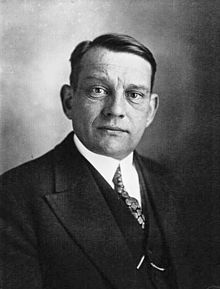René Coty
|
His Excellency René Coty LH |
|
|---|---|

René Coty in 1929.
|
|
| 17th President of France | |
|
In office 16 January 1954 – 8 January 1959 |
|
| Prime Minister |
Joseph Laniel Pierre Mendes-France Edgar Faure Guy Mollet Maurice Bourgès-Maunoury Félix Gaillard Pierre Pflimlin Charles de Gaulle |
| Preceded by | Vincent Auriol |
| Succeeded by | Charles de Gaulle |
| Co-Prince of Andorra | |
|
In office 16 January 1954 – 8 January 1959 |
|
| Preceded by | Vincent Auriol |
| Succeeded by | Charles de Gaulle |
| Member of the French Senate | |
|
In office 7 November 1948 – 23 December 1953 |
|
| Constituency | Seine-Maritime |
|
In office 14 January 1936 – 1 January 1944 |
|
| Constituency | Seine-Maritime |
| Minister of Reconstruction and Urban Development | |
|
In office 24 November 1947 – 7 September 1948 |
|
| Prime Minister |
Robert Schuman, André Marie |
| Preceded by | Jean Letourneau |
| Succeeded by | Eugène Claudius-Petit |
| Member of the French National Assembly | |
|
In office 21 October 1945 – 19 November 1948 |
|
| Constituency | Seine-Maritime |
|
In office 10 June 1923 – 31 May 1935 |
|
| Constituency | Seine-Maritime |
| Personal details | |
| Born |
René Jules Gustave Coty 20 March 1882 Le Havre, France |
| Died | 22 November 1962 (aged 80) Le Havre, France |
| Nationality | French |
| Political party |
Radical-Socialist Party (1908–1923) Democratic Alliance (1923–1940) Independent (1940–1949) National Centre of Independents and Peasants (1949–1962) |
| Spouse(s) | (m. 1907–55); her death |
| Children | Geneviève (1908–1987) Anne-Marie (1910–1987) |
| Alma mater | University of Caen Normandy |
| Profession | Lawyer |
| Religion | Roman Catholicism |
| Military service | |
| Allegiance |
|
| Service/branch | French Army |
| Years of service | 1914–1918 |
| Rank | Soldier |
| Unit | 129th Infantry Regiment |
| Battles/wars |
|
René Jules Gustave Coty (French pronunciation: [ʁəne kɔti]; 20 March 1882 – 22 November 1962) was President of France from 1954 to 1959. He was the second and last president of the Fourth French Republic.
René Coty was born in Le Havre and studied at the University of Caen, where he graduated in 1902, receiving degrees in law and philosophy. He worked as a lawyer in his hometown of Le Havre, specialising in maritime and commercial law.
He also became involved in politics, as a member of the Radical Party, and in 1907 was elected as a district councillor. The following year he was elected to the communal council of Le Havre as a member of the Republican Left group. He retained both of these positions until 1919. Coty also served as a member of the Conseil Général of Seine-Inférieure 1913–1942, holding the post of Vice President from 1932.
With the outbreak of the First World War, Coty volunteered for the army, joining the 129th Infantry Regiment. He fought at the Battle of Verdun. In 1923, Coty entered the Chamber of Deputies, succeeding Jules Siegfried as Deputy for Seine-Inférieure. However, by this stage of his political career he had moved away from the Radical Party, and sat as a member of the Republican Union. Between 13 and 23 December 1930 he served as Under-secretary of State for the Interior in the government of Théodore Steeg.
In 1936, Coty was elected to the Senate for Seine-Inférieure. He was one of the French parliamentarians who, on 10 July 1940, voted to give extraordinary powers to Philippe Pétain, thereby bringing about the Nazi-backed Vichy government. Coty remained relatively inactive during World War II, although he was rehabilitated after the war.
...
Wikipedia
